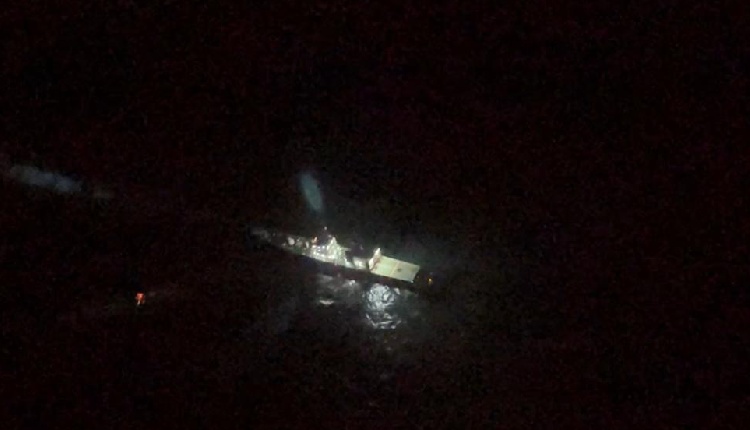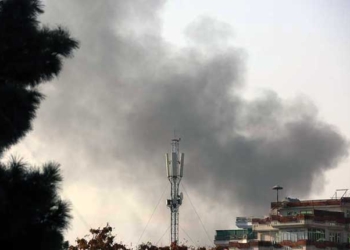Kolkata: General cargo vessel ITT Puma, which capsized about 90 nautical miles (NM) south of Sagar Island in West Bengal, had fuel tanks nearly full raising concerns about a major oil spill in the Bay of Bengal.
Indian Coast Guard (ICG) said that the 42-year-old ITT Puma was headed from Kolkata to Port Blair in the Andamans, a distance of nearly 900 NM. The ship would have covered only about 170-180 NM before it sank, leaving its fuel tanks nearly full.
“If an oil spill does occur, the tides could push it northward towards the ecologically fragile Sundarbans. The Sundarbans is also about 90 NM north of the spot where the ship is suspected to have capsized,” the ICG said.
It said that an oil spill at that location may also cause harm to marine life over a large area, impacting the lives of fishermen from both India and Bangladesh.
The Indian Coast Guard said that normally fuel tanks are sealed and do not rupture unless under extreme pressure while an inquiry is underway to ascertain the cause of the disaster.
“We are monitoring the situation and necessary action will be taken if any oil slick is spotted,” the ICG said.
The ICG said it rescued 11 Indian sailors after IIT Puma capsized in the Bay of Bengal on Sunday. “Three crew members are still missing while a search operation has been launched,” ICG said.
It added that they received a distress message from the ITT Puma at 4.25 pm on Sunday, following which a Dornier aircraft with night-capable sensors and two ships were pressed into service for Search and Rescue (SAR).
“The aircraft spotted two life rafts tied to each other and vectored ICG ships Sarang and Amogh to the location. Nothing was seen of the ITT Puma which had apparently disappeared below the surface of the sea by then,” the ICG said.
The ICG is the nodal agency in charge of pollution at sea. It has a specialised vessel ICGS Samudra Prahari for that purpose. Some of its other ships also have pollution-control equipment on board.
Meanwhile, questions have already started being raised about the seaworthiness of the ITT Puma which was well past her prime. The ship was built in 1982.
The Indian Meteorological Department (IMD) had indicated the development of a low-pressure trough over the Bay of Bengal on Sunday.
This formation resulted in moderate to heavy rainfall and a bit of swell but the sea wasn’t as rough as to cause a disaster for a 72-metre-long ship.
(IANS)
















